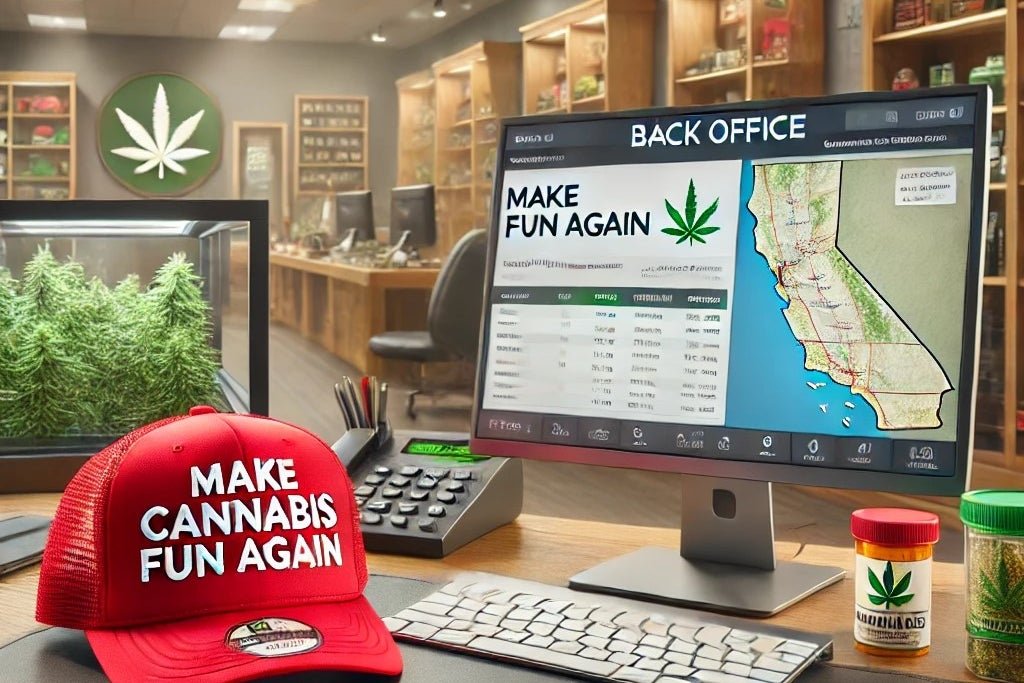JP DonahueCMO for Deep rootsa digital agency focused on helping cannabis retailers increase market share, began its journey in the cannabis industry with deep roots in cultivation under California’s Prop 215.
Transitioning from a career in screenwriting and law, Donahue’s experience in cultivation has significantly shaped his approach to cannabis branding. His understanding of the complexities involved in maintaining consistent product quality has been instrumental in his branding strategies.
In 2024, Donahue has shifted his focus to helping cannabis brands recover from what he refers to as “SEO trauma” – the damage caused by agencies that overpromise and underdeliver on search engine optimization. His approach is rooted in transparency and realistic strategies aimed at restoring trust and creating tangible results for businesses burned by unreliable SEO practices.
Drawing on his diverse background, Donahue’s journey exemplifies how brands can overcome setbacks and achieve lasting success. For those frustrated by ineffective SEO efforts, his work offers a clear path to turning things around and achieving real, measurable results.
The superhero model: Find your brand’s superpower
In a forthcoming book, “How to sell weed – a field guide,” Donahue presents the “Superhero Model” of cannabis branding, which focuses on identifying and leveraging a brand’s unique “superpower”—what it does best.
“The answer to that question is your brand,” Donahue explained. “Every brand must have an answer to the question: What is your superpower? What do you do better than anyone else? If you don’t have an answer, you’re not a brand.” To illustrate this, he brought up the example of cannabis dispensary and delivery service Tropicanna. In this case, the superpower was customer service.
Donahue’s Superhero Model also emphasizes the importance of a cohesive brand experience. He argues that branding goes far beyond just a logo or a name. “Every logo and name is a symbol. Underneath that symbol are your brand values and your brand experience, which covers every single thing you do,” he said. “Your menu is your brand, your customer service is your brand, even how you empty your bins is part of your brand.”
“You have to create a narrative and an experience that people want to be a part of. If you don’t, you’re running a gas station or a 7-Eleven,” Donahue said.
Get Benzinga’s exclusive analysis and the best news about the cannabis industry and markets in your inbox daily for free. Sign up for our newsletter here. If you’re serious about the business, you can’t afford to miss out.
Make cannabis fun again
In 2019, Donahue was a co-founder Tropicana Dispensary in Santa Ana, California, entering a highly competitive market with 20 dispensaries already operating nearby.
At the time, most cannabis dispensaries were stuck in a medically-focused mindset, branding themselves with sterile, clinical aesthetics. Donahue saw an opportunity to break away from this mold. “Everyone was trying to blend in instead of stand out,” Donahue explained. “But we were recreational. Nobody started smoking weed for their glaucoma.”
Tropicanna’s branding embraced the fun, recreational side of cannabis, creating a vibrant, colorful atmosphere that felt more like a Miami Beach day club than a traditional dispensary.
This approach was not without its skeptics. “People made fun of us,” Donahue recalled. Critics questioned whether Tropicanna’s bold, playful branding would resonate with consumers.
But the strategy paid off. Within a year and a half, Tropicanna rose from the bottom of the market to a top-five position, achieving $15 million in annual revenue. Bright colors, engaging retail spaces and a welcoming atmosphere attracted customers tired of the outdated, medical-centric approach that dominated the industry.
Also read: Tony Stark’s Choice Vape? Synergy Innovation’s strategic move to recreate brands’ identity, Lead Market Niche
The 70/30 Rule: How Deeproots Drive Cannabis Retail Success
JP Donahue’s partnership with Matthew Shterenberg and the team at Deeproots was a game-changer for Tropicanna Dispensary. Donahue attributes much of Tropicanna’s rapid rise to the top of the market to the effective use of search engine optimization (SEO) provided by Deeproots.
“The difference between being first and second is huge. First place can take up to 70% of clicks, and the rest are left fighting for the remaining 30%,” Donahue shared. This 70/30 rule – where the top search result can command up to 70% of clicks – demonstrates the power of effective SEO.
Deeproots approaches SEO with a careful, data-driven strategy, something Donahue highlights as essential in an industry plagued by over-promising and under-delivering agencies. “We call it ‘SEO trauma,'” Donahue explained, referring to the disillusionment many businesses feel after investing in ineffective SEO services.
However, Deeproots differentiates itself by offering what Donahue describes as “a high-touch service that delivers results.” The process at Deeproots begins with an in-depth diagnosis of a client’s digital health, including a complete teardown of its website, an analysis of keyword rankings, and an assessment of its Google Business page.
This diagnostic phase culminates in a detailed roadmap that outlines the exact strategies needed to improve both organic website rankings and the Google Business page. “We provide a step-by-step GPS to get them where they need to go,” Donahue said.
“We have a regular reporting cadence where we come in with clients once a month,” Donahue noted. During these sessions, Deeproots reviews what works, what doesn’t, and what tweaks are needed to further optimize performance.
Read Next: The Secret to Going Viral in the Cannabis Space: How a Creator Shapes Social Media with Influencer Marketing (UPDATED)
© 2024 Benzinga.com. Benzinga does not provide investment advice. All rights reserved.
